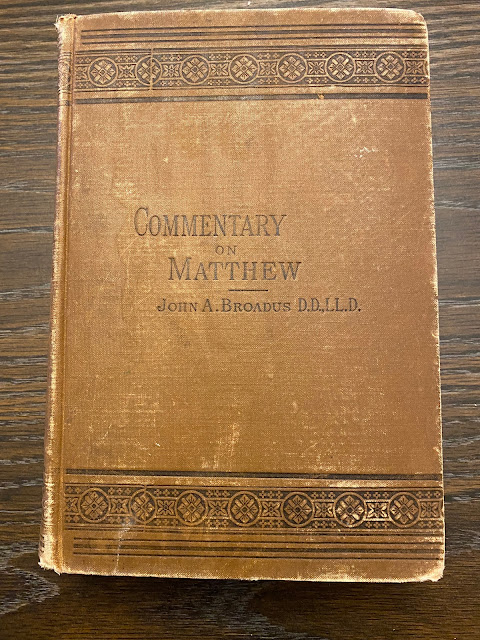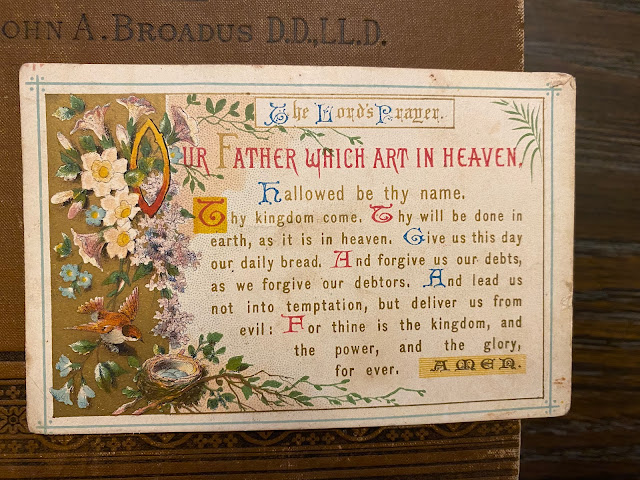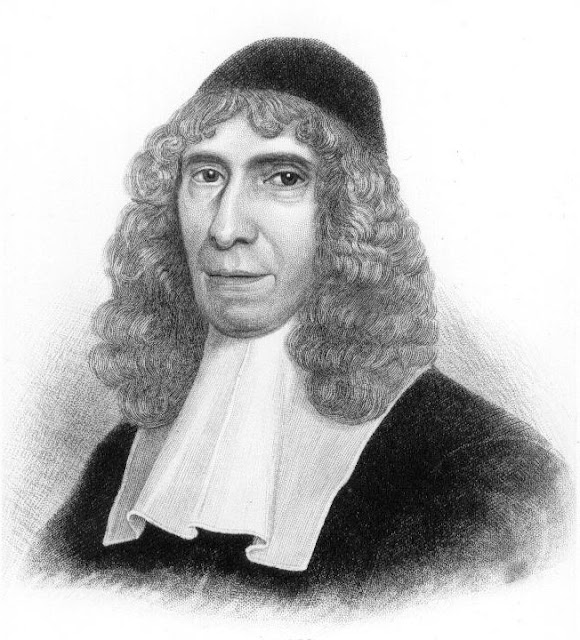Notes:
Introduction:
I was struck by this brief quote in the 1/3/22 Dwayne
Green podcast from Pastor Elijah Hixson (of Fireside Fellowship Church,
Kingston, Tenn. and Tri-State-Bible
College in South Point, Ohio [the school’s doctrinal
statement says it is in “the Protestant Reformed and Dispensational tradition”
and its distinctives include a robust affirmation of the pre-trib rapture]):
…when a Confessional Bibliologist reads about the promises of
God, they believe that it applies to the Bible in their hands, and my response
to that is, yeh, [but] it also has to apply to everybody else’s Bible in their hands
too. Because theology, does it only matter in one place? Or is it what’s true
yesterday, today, and forever? If the promises of God are true and perfect, they
are true and perfect for everybody and not just one group of people.
This recalls a version of a statement I have heard and read
from evangelicals who embrace the modern critical text methodology, which essentially
states that since every extant ms. of the NT was somebody’s Bible, then
every variant in that ms. must be given some authoritative weight and
consideration (after all, it was somebody’s Bible).
Underlying this statement is the assumption that there is no
standard text of the Bible, or, at least no standard text of the Bible that can
ever be fully recovered.
So, every variant reading found in the NT must be accepted as
authoritative for the community that once used it.
This approach exposes an insurmountable problem, however, for
those who embrace the reconstruction, empirical method. It is the problem of provenance.
We simply do not know where many of these manuscripts and fragments of manuscripts
comes from or what the communities that used them believed. We have no way to
determine whether they were orthodox or Ebionite, Marcionite, Arian, etc. Thus,
it also encounters the problem of truth. If a text does not have the proper
text of the Bible, then it was not a proper Bible, even if it was “somebody’s
Bible.”
It also reflects the inroad of postmodernism.
This goes back to Bart Erhman and his influential 1995 essay,
“The Text as Window: New Testament Manuscripts and the Social History of Early
Christianity” in Bart D. Erhman and Michael W. Holmes, Eds., The Text of the
New Testament in Contemporary Research: Essays on the Status Questionis
(Eerdmans, 1995): 361-377. Ehrman concludes that essay by saying, “Much more,
however, is left to be done… as we move beyond a narrow concern for the autographs
to an interest in the history of their transmission, a history that can serve
as a window into the social world of early Christianity (375).
This inroad includes the perspective of D. C. Parker and his
groundbreaking book The Living Text of the Gospels (Cambridge University
Press, 997), in which he says there is no original, authoritative text, but the
Gospels (and the NT in general) are a living text; that is to say, it consists
of many texts, none of which are authoritative in comparison to any other. At
one point he says that theological arguments based on the notion of a “single
authoritative text” are “castles in the air” (76). He also scoffs at any idea
of providential preservation as the result of “un-self-questioning
conservativism” (129).
Review of Solomon’s article:
That brief statement by Hixson also brought to mind one of
the articles that appear in the Myths and Mistakes book, co-edited by
Hixson and Gurry.
Chapter 9 is “Myths About Transmission” (171-190) by S.
Matthew Solomon [it looks like Solomon works for the corporate office of Kroger
in Cincinnati, OH and also teaches at the online Luther Rice College
and Seminary].
This chapter was based on Solomon’s 2014 PhD dissertation at
NOBTS, “The Textual History of Philemon.”
Solomon’s chapter is about the transmission of this briefest
of Paul’s letters (just 25 verses) and one of the shortest books in the Bible.
The article is based on Solomon’s painstaking attempt to
collate every single extant manuscript of Philemon. He notes that this is a
task that really could only have happened in the digital age.
There are several very interesting and revealing things about
this article. Let me share just a few:
On the first page, MS says that one of the chief outcomes of
the chapter is that it demonstrates that “more work is needed” and that the establishment
of the text of the NT continues (171). Nearly 2,000 years have passed, and we
still don’t have a text, even of Philemon.
He notes that of the c. 335 words in Philemon there are
hundreds of places of variation in the text (see p. 172).
In the introduction, MS states, “We must remember that every
single handwritten copy of the Bible was someone’s Bible—whether personal
or church copies (more likely)” (172-173).
He also introduces here the idea that variants “can act as a
commentary on the text of the NT” (173).
Moving on to discuss his collation he repeats again “much
work remains to be done” (173).
MS notes that his collation made use of over 570 Greek mss.
that include at least some part of Philemon.
Of these only 23 of the 570-plus were earlier than AD 900,
and only nine were earlier than AD 700.
And of those nine, most were fragmentary, with only three
providing the entire text of Philemon: 01, 02, and 06.
He notes that only 4% of extant mss. of Philemon are from before
the year AD 900 and the number only climbs to 10% if one counts mss. dated to
the 900s (178).
Aside: This demonstrates the futility of the whole modern reconstruction
method. There is simply not enough early evidence to justify the entire
enterprise.
He proceeds to note the different types of variants in Philemon,
including addition and omissions, replacements, and transpositions.
MS warns that one should not downplay the number of variants.
He observes, “In fact, almost every word in Philemon is included in a variation
unit wherein at least one manuscript contains a textual variant” (183).
From here MS moves on to discuss his previously mentioned
notion of the variants as a “textual commentary.”
Again he emphasizes, “Each of these manuscripts was someone’s
Bible” (184).
He focuses on three variants in v. 6 which he calls “by far
the most difficult”:
First, he discusses the question is whether it should read koinōnia
or diakonia. Both TR and NA28 read koinōnia.
A second question is whether the term “work [ergou]” should be added to make
it “every good work.” Third, should it read “in you” (TR) or “in us” (MCT).
After the discussion of v. 6, he notes again how these variants
might act as a commentary on the text and concludes that such variants “should
not be jettisoned completely by scholars, pastors, and laypeople but should be
seen as a part of the interpretive Technicolor tapestry of the church being
woven for nearly two thousand years now” (188).
Aside: Reflect on that for a moment. Do we have an authoritative
Bible that is complete? Or, do we have a mere tapestry albeit an interpretive Technicolor
one) that is still being woven?
In the article’s conclusion MS does note that “It is safe to
say that we have the entire initial text [Note: He does not say “autograph”]”
of Philemon, except for v. 6 (“us” or “you”) and v. 11 (inclusion of a kai).
He adds:
“For these places, which reading is original really does not
matter for interpretation. It does not matter because it did not matter for the
early church. We cannot hold ancient manuscript culture to the same standard as
our modern print culture” (189). He proceeds to insist that this does not mean
we cannot have “confidence” in the text.
Aside: Did the text of the Word of God “not matter” to the
early church?
In the final paragraph he reiterates: “The question of the
text of the NT is not settled,” adding that the variants can be “windows into
beliefs” (189).
Aside: This idea comes directly from Ehrman. Here is an
oddity we have addressed before, modern evangelicals have created a cottage
industry around supposedly defending the Scriptures against Ehrman, when, in
fact, they have actually embraced wholeheartedly his approach to the text.
Final Thoughts:
Solomon’s chapter demonstrates the flaws of the reconstruction
method. Even a short letter has hundreds of variants and few early witnesses.
It cannot confidently produce a standard text. Even though, in the case of
Philemon, the variants may appear minor, every part of Scripture has value and
variants in other books will prove much more substantial to all.
Most importantly, we see that the “every Bible was somebody’s
Bible” approach put forward by Hixson, et al. will never produce a standard,
authoritative received text. Of course, we don’t need the text to be
reconstructed, if we already have it. We
do have it in the TR.
Contrast the view of Gurry, Hixson, and Solomon with John
Owen (1816-1883):
“…yet,
through the watchful care and providence of God, sometimes putting itself forth
in miraculous instances, it [Scripture] hath been preserved unto
this day, and shall be so to the consummation of all things. The event of that
which was spoken by our Saviour, Matt. v. 18, doth invincibly prove the divine
approbation of this book, as that doth its divine original, ‘Till heaven and
earth pass, one jot or one tittle shall in no wise pass from the law.’ God’s
perpetual care over the Scripture for so many ages, that not a letter of it
should be utterly lost, nothing that hath the least tendency toward its end
should perish, is evidence of his regard unto it."
“For my part, I cannot but judge
that he that seeth not an hand of divine Providence stretched out in the
preservation of this book and all that is in it, its words and syllables, for
thousands of years…. doth not believe there is any such thing as providence at
all.”
-John Owen (The Reason of Faith, Works,
4, 24).
JTR












